emPOWER Cooperative’s Journey
The emPOWER Cooperative has been running explorations into effective interventions since 2016.
This story is long; if you want to know what we’re doing now, skip to Phase IV.

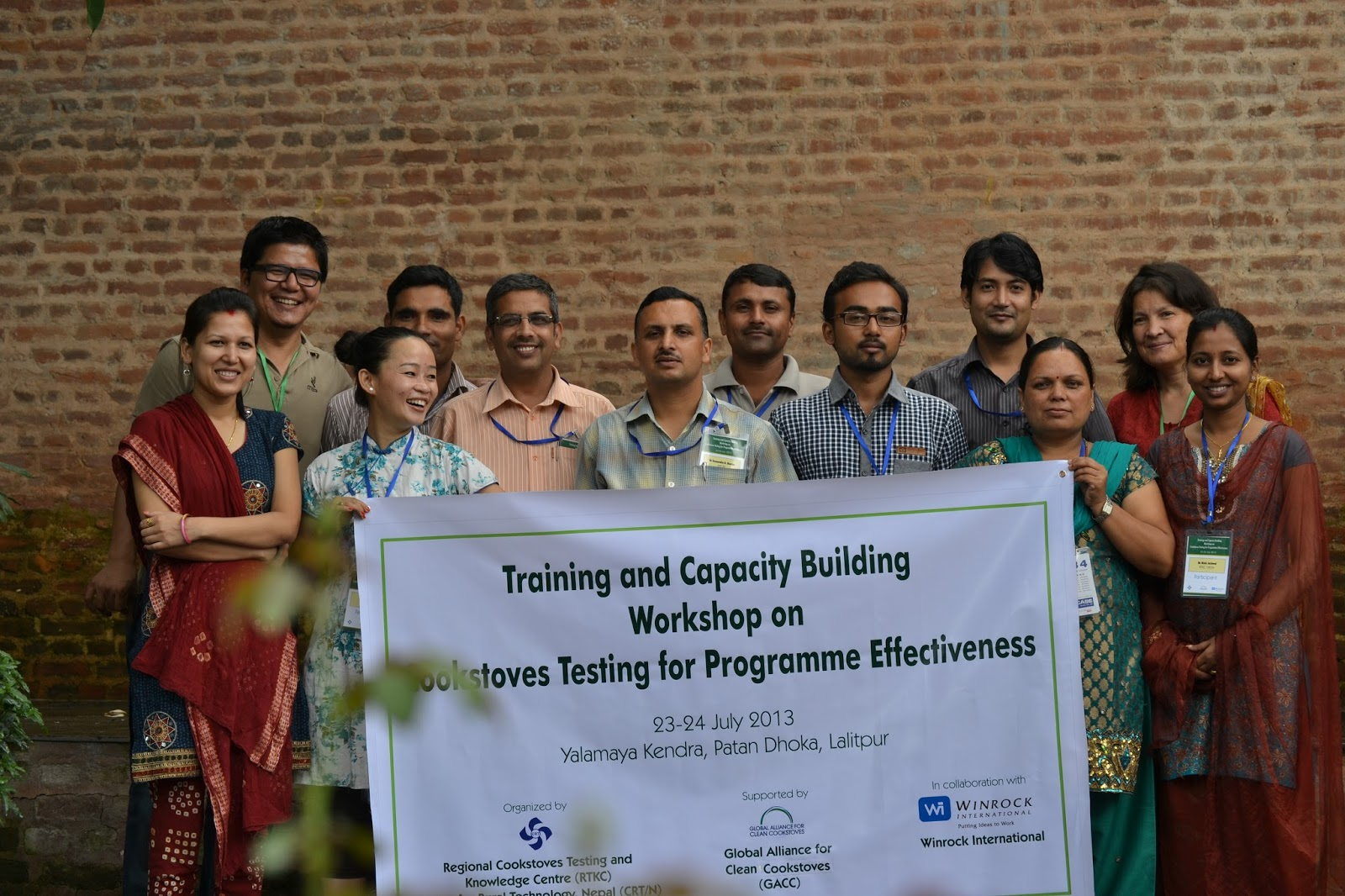
Setting (2010-2016)
The roots of The emPOWER Cooperative lay in an existing cooperation between U.S. researchers and Nepali NGOs and researchers. The Centre for Rural Technology / Nepal (with Shovana Maharjan and Ashma Vaidya) had been working with Tami Bond for about 6 years, and Tami’s research group had assisted in setting up a testing center for biomass stove emissions. Usha Maskey at Minergy and Ellen Baum had worked on implementing upgrades for brick kilns, and Tami’s research group had helped develop testing protocols and equipment for air pollutant emissions.
At the same time, Anita Shankar had been working on empowerment, specifically agency-based training, for years. She encountered the household energy field and developed the Empowered Entrepreneur handbook. She had met most of the other participants independently, so it was a natural fit when they began to coalesce.
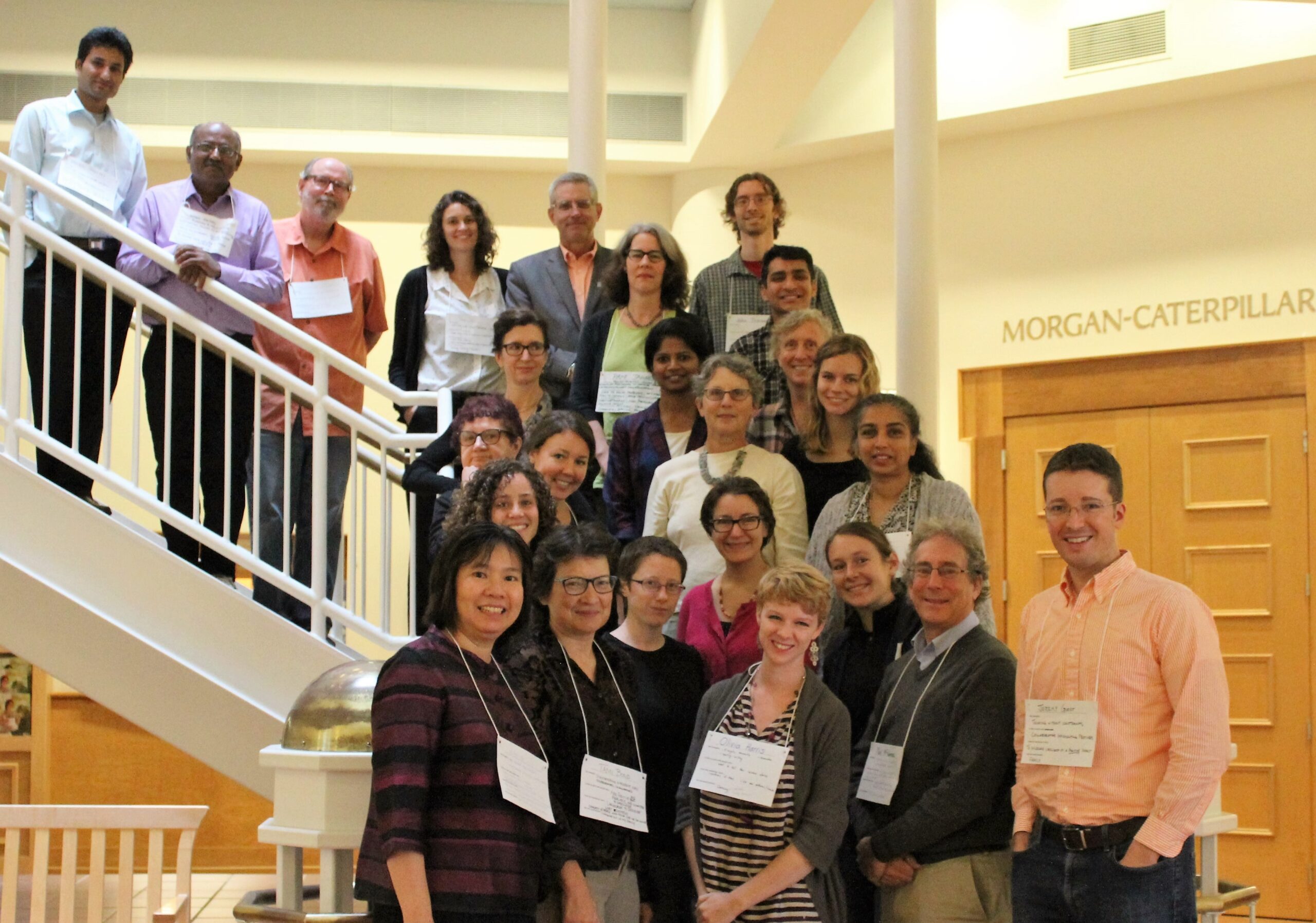
Inception (2016)
The emPOWER Cooperative was initiated after two workshops held at the University of Illinois at Urbana-Champaign. The workshops explored the effectiveness (and ineffectiveness) of international development projects that focused on resource delivery. Many of the interested parties had experience in the realm of household energy. Drinking water, sanitation, and housing were represented, too. A feature of the workshop was demanding equal numbers of social scientists and technical participants. The participants recognized that some of the barriers to effectiveness were failure to adapt to context, and misalignment of incentives between programs and recipients.

Exploration
We spent some time delving into relevant approaches. For example, human-centered design has been around for a while – but it assumes that the humans in question actually want the thing you’re designing. Participatory rural appraisal is (nearly) as old as the hills, but it doesn’t describe how to find a match between offered services and community needs.
We also saw that even when potential recipients had the chance to give input, they deferred to “experts” as the source of knowledge. Perceived experts were from outside: urban, educated, sometimes – but not always – international. Power differentials were affecting the ability to assess the context realistically. How do you change that?
In addition to relationships, we had another thing in our favor: we could avoid the mismatch between funding demands and recipient needs. A MacArthur Fellowship awarded to Dr Bond provided resources to support the team. Its unrestricted nature meant that we could try approaches without fear of failure, and we didn’t have to try to make results fit a donor’s priorities.
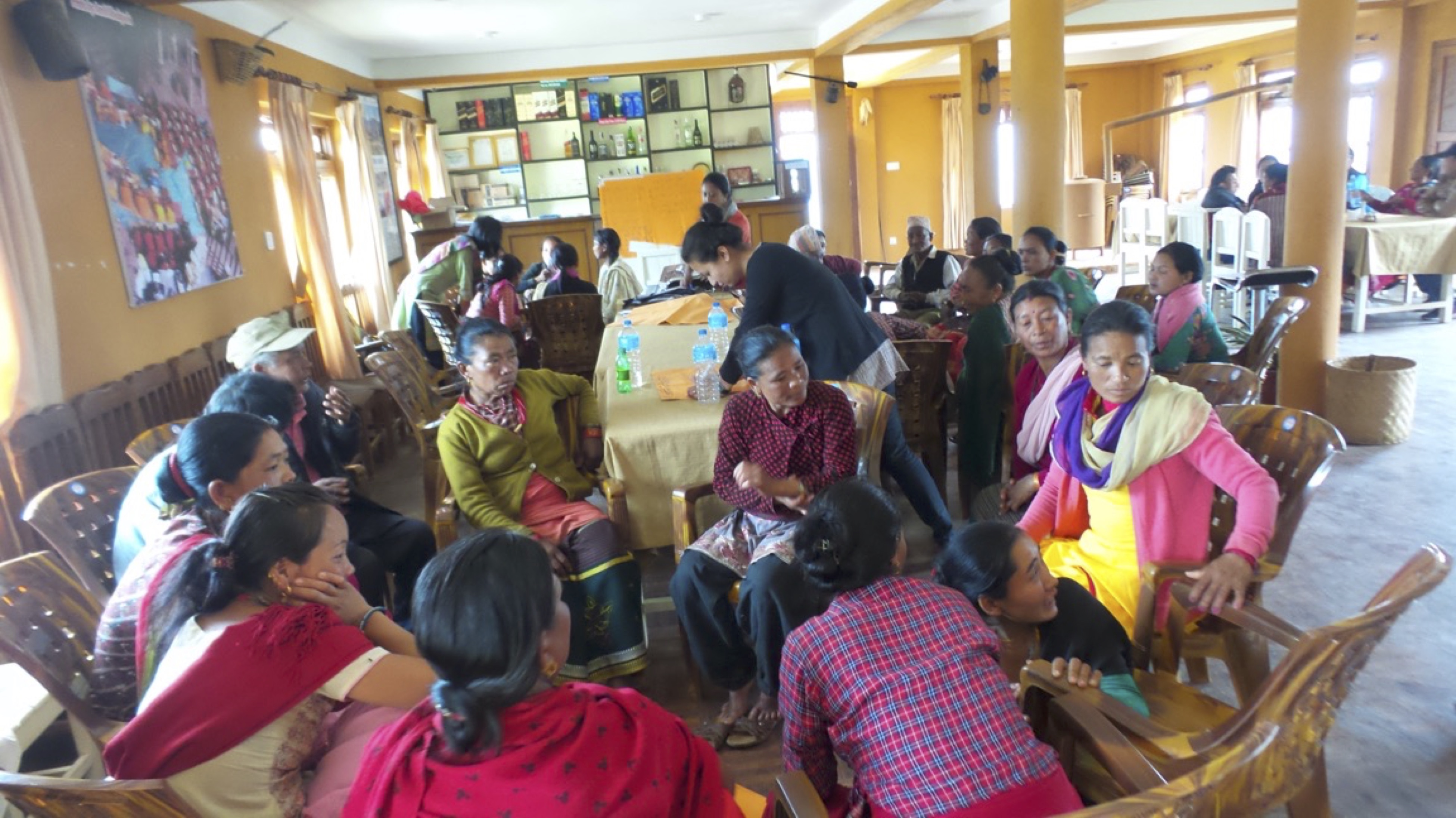
Phase I (2016-2018)
We decided to work on communication across power differentials. Adapting exercises in The Empowered Entrepreneur Handbook, which were themselves sourced in participatory rural appraisal, we developed a set of activities to emphasize personal agency and self-worth – not just among leaders or entrepreneurs, but among all recipients. If everyone’s voice was raised, perhaps we would hear about the energy transition they really wanted. Thus, the emPOWER* package was born.
The Nepali team selected one small village and did a rapid needs appraisal. Then, we brought all the villagers who were willing to participate (27 women and 6 men) for a 2.5-day training, before asking them about any resource decisions.
Well, we succeeded: participants became willing to share their aspirations. And we failed: once they opened up, they told us that energy was low on their list of concerns. Their ambitions included almost anything but cleaner energy: agricultural improvements, reliable water supply, income-generating activities. To honor their priorities, we arranged training in agricultural practices.
We also learned from observation. The emPOWER* principles are simple to describe, but difficult to put into action. Participants need follow-up and mentoring, which we arranged about once a month. Yet, because the principles of personal agency do not appear to yield a change in resources, participants didn’t value the follow-up sessions. Attendance dropped and the connection waned.
Phase II
(2019-2021)

We reflected on obstacles that had appeared and designed the next phase to address some of the issues.
Resource coupling: Participants value material resources, so the emPOWER* training might be more attractive when paired with delivery of physical goods.
Recipient choice: Many programs have already decided what they want to deliver, a decision that removes self-determination from the participants. We sought a program that wasn’t fully determined.
Energy theme: Most people don’t think about energy as an element of their lives. We hypothesized that people might choose energy upgrades more often if they thought about what energy provided.
We decided to partner with an EcoVillage Development Project (EVD), administered through CRT/N, that allows participants some choice over the technologies that are introduced, although the choices are still constrained. The EVD delivery was funded by UNEP GEF, and the Cooperative added the emPOWER* training and mentoring.
The COVID-19 pandemic occurred, and there was a period when we couldn’t do field work, so we redesigned and streamlined the emPOWER* package and added Lina Brand’s Human Scale Energy Services activities (photo).

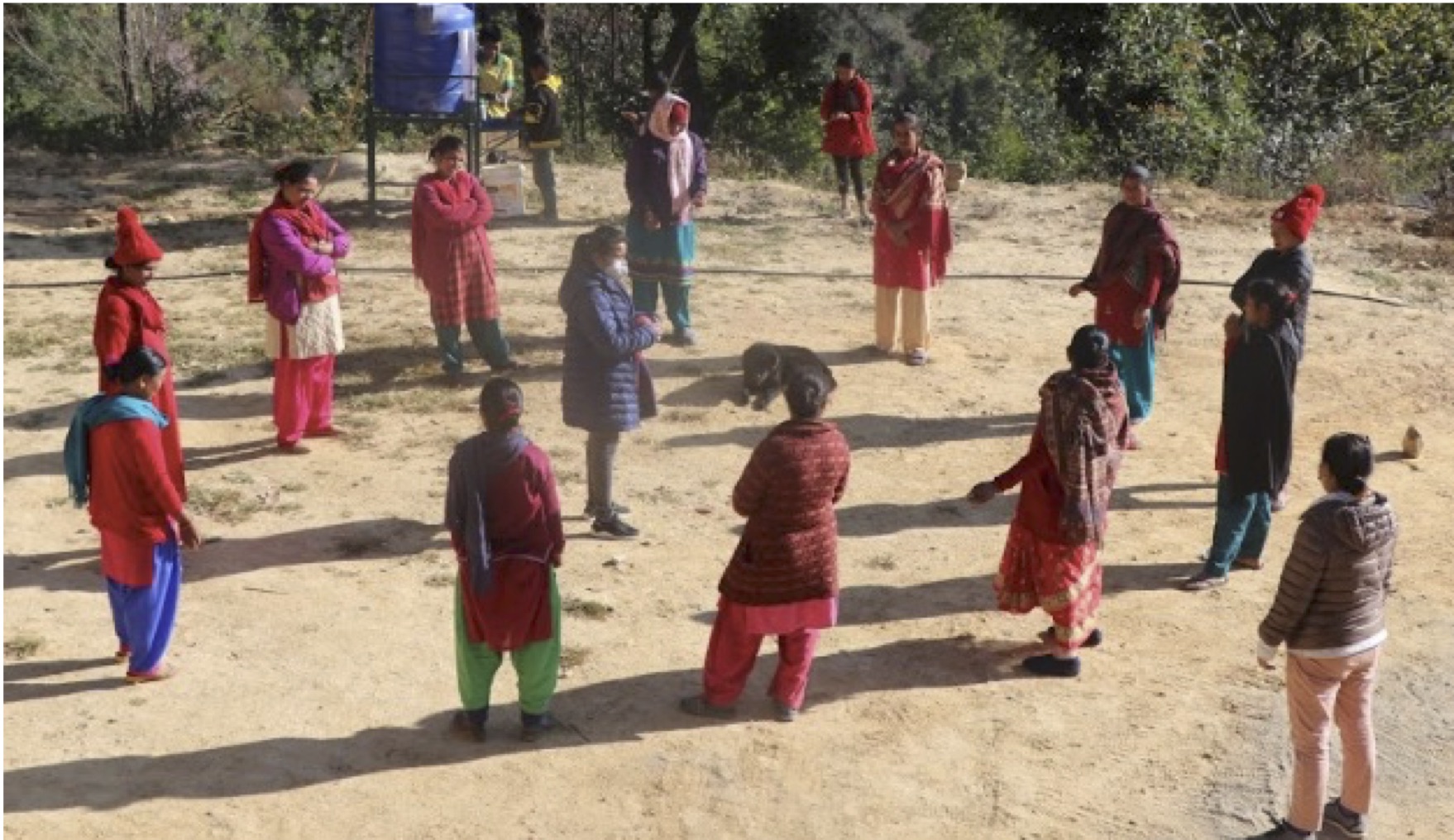
We finally delivered the training in November 2020 and conducted follow-ups for a few months. emPOWER* trainees were more vocal at expressing their desires in choosing among the EVD technologies, and some asked for technologies outside the EVD offerings.
Fifteen months later, an arm’s-length evaluator interviewed emPOWER* trainees as well as EVD participants who didn’t receive the emPOWER* training. She found that emPOWER* participants were comparatively clear about their future plans, more willing to ask questions of authority, and that many were actively applying their training in the new technologies. Even those who didn’t become active in training were paying more attention to self-care. Many of the new activities were around agriculture for income generation, not energy; even new energy activities were directed toward income generation.

Phase III (2020-2022)
Phase III was the brainchild of the Nepali team and housed at Minergy. During the time we’d been working together, the government structure in Nepal had changed substantially, with more power being assigned to local governments. Municipalities were developing their own Municipal Energy Plans (MEPs), and the Energy Development Subcommittees were also required to have a quota of female participants. MEPs drive government funding allocations for energy upgrades.


Would the household-focused energy needs of females be brought forward in this process? Or would the MEPs remain focused on technology acquisition as they had in the past? Perhaps the way to direct resources to energy transitions is not to ask end-users, who rarely think about energy, but to leverage the closest-to-local governance structure that does think about it.
Phase III was funded by the Canada Fund for Local Initiatives. The emPOWER* package was, once again, adapted – this time for energy subcommittees – and delivered prior to development of the MEP. The outcome was that women on the committee were quite vocal about broad energy issues, in contrast to other committees where they remained deferential.
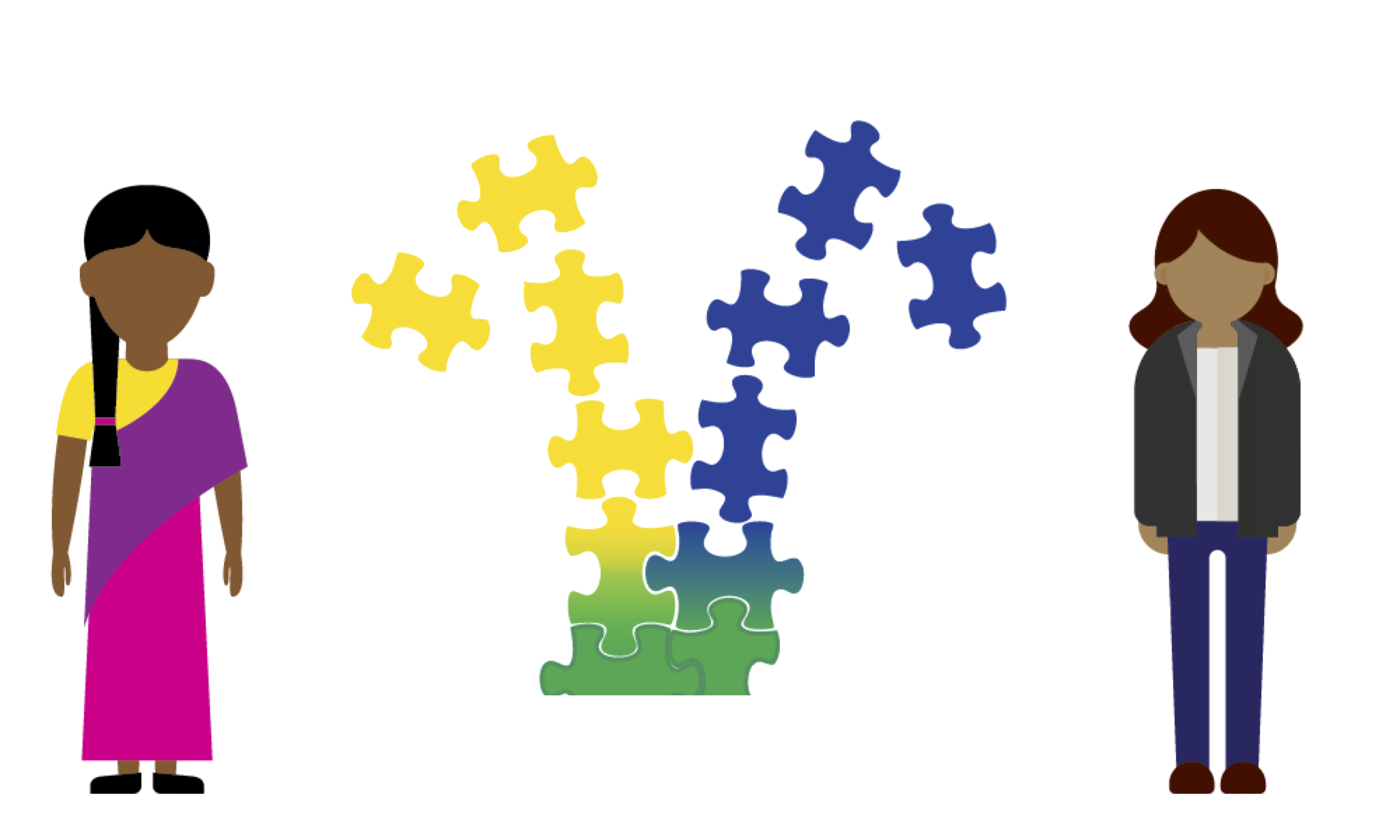
Phase IV – begins 2023
In every phase of The emPOWER Cooperative, we have observed that exercises in personal agency – that is, the emPOWER* package – encourage people to communicate more honestly across power differentials. We believe that this communication forms a basis for lasting adoption of changes in resource delivery, and that the personal transformation that occurs leads to creativity in adaptation of technology rather than abandonment. But, we have to prove it. If we don’t, programs will keep delivering things that people don’t want, and both donors and recipients will be quiet about it.

We are exploring comparative studies to support our anecdotal, but consistent, observations. The way people usually “prove it” in development activities is through randomized controlled trials (RCTs). But we are dealing with very complex systems, where RCTs often fail. We’re informed by another approach called realist evaluation. We plan to compare Municipal Energy Plans and implementation, done with and without emPOWER* training.
